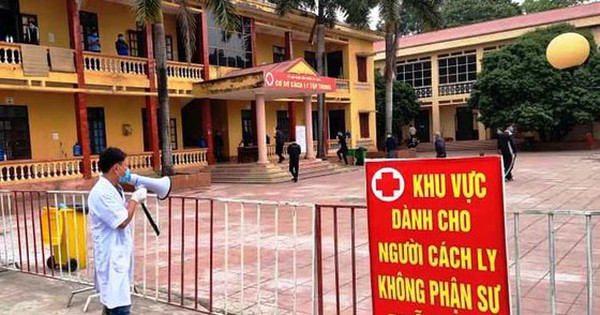 |
|
|
Previously, all people who were F1 cases were isolated at concentrated quarantine centers.
According to the Ministry of Health, the new strains of SARS-CoV-2 virus are capable of spreading quickly on a large scale. The number of F1 cases is large, and thus centralized quarantine facilities are now overloaded.
To reduce the risk of cross-infection at concentrated quarantine centers, the Ministry of Health has permitted Ho Chi Minh City to pilot home quarantine for F1 cases.
Local authorities are responsible for closely monitoring, and supervising, taking samples for covid testing for quarantined people under current regulations.
According to the guidance of the Ministry of Health, F1 cases are eligible for home quarantine if they stay in separate houses such as villas, townhouses... There must be a warning sign with red background and yellow letters in front of the door: "Quarantine place to prevent and control the Covid-19 epidemic”.
The home quarantine period is 28 days.
There must be a closed room for the F1 case, which is separate from the family's common living area. If the house has several floors, one should be used as the quarantine area.
Next to isolation rooms, there must be a separate room for medical staff to conduct medical examination, take samples and monitor health (with tables, chairs, hand sanitizer containing at least 60% alcohol, containers for infectious waste, household waste).
In the isolation room, there must be a waste container, yellow in color, with a lid, opened by foot pedal, covered with a yellow bag for infectious waste (masks, towels, tissues) and a container for common household waste. Every day, the quarantined person must clean and disinfect the room by himself. In the room, there must be hand soap, hand sanitizer, and a temperature measuring device.
The isolated people are not allowed to use the central air conditioning system. They are not allowed to leave the isolation room during the quarantine period, and not have contact with family members as well as other people and even pets.
Every day, quarantined people measure their body temperature, and monitor their health to update information on VHD or Bluezone app.
There must be a table in front of the door of the isolated room to provide meals, drinking water and other necessities for the quarantined person. It is strictly forbidden to bring belongings and items of the quarantined person out of the house, and not share personal items such as bowls, chopsticks, spoons, cups, toothbrushes, and face towels with people under quarantine.
In addition, in families with F1 cases under home quarantine, there must be adequate means of infection prevention such as masks, gloves, shoes, goggles, and clothes for family members to use when they must have contact with the person under quarantine.
During 28 days of quarantine at home, the isolated person will be tested at least 5 times (days 1, 7, 14, 20 and 28).
If the F1 case is a child or elderly person, who has underlying diseases and needs a caregiver, a caregiver can be assigned.
The People's Committees of communes and wards only allow people to begin home quarantine after checking and confirming that they are eligible for home isolation. The management and supervision of F1 cases must strictly comply with regulations. Transportation and collection of medical waste must be done.
Thuy Hanh

Vietnam pilots seven-day quarantine for foreigners with two Covid-19 jabs
Vietnamese Ministry of Health has decided to implement the pilot of the vaccine passport program in the Northern Province of Quang Ninh.